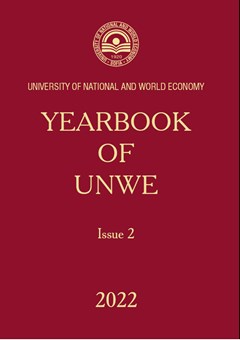Towards A Definition of “Partial Universalism“: The Objection of John Ferejohn and Debra Satz to the Pathologies of Rational Choice Theory
Author: Hristina Dobreva
Abstract
The paper compares and tries to find a common ground between two camps, proposing different interpretations on the notion of “partial universalism” as opposed to unlimited universalism in rational choice theory. The explanation preferring different theoretical approaches in a complex environment of blurred boundaries is juxtaposed with the explanation of a two-level hypothesis: rational and intentional, where the “weak” additional independent hypothesis is also tested for rationality. The need for a synthesis in the first case is compared to the need of a situational/context dependent causal mechanism, avoiding circular causality. The pragmatic common ground is the improvement of rational choice methodology.
JEL: А10, Y80

